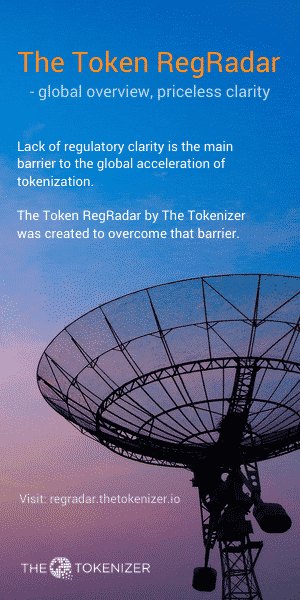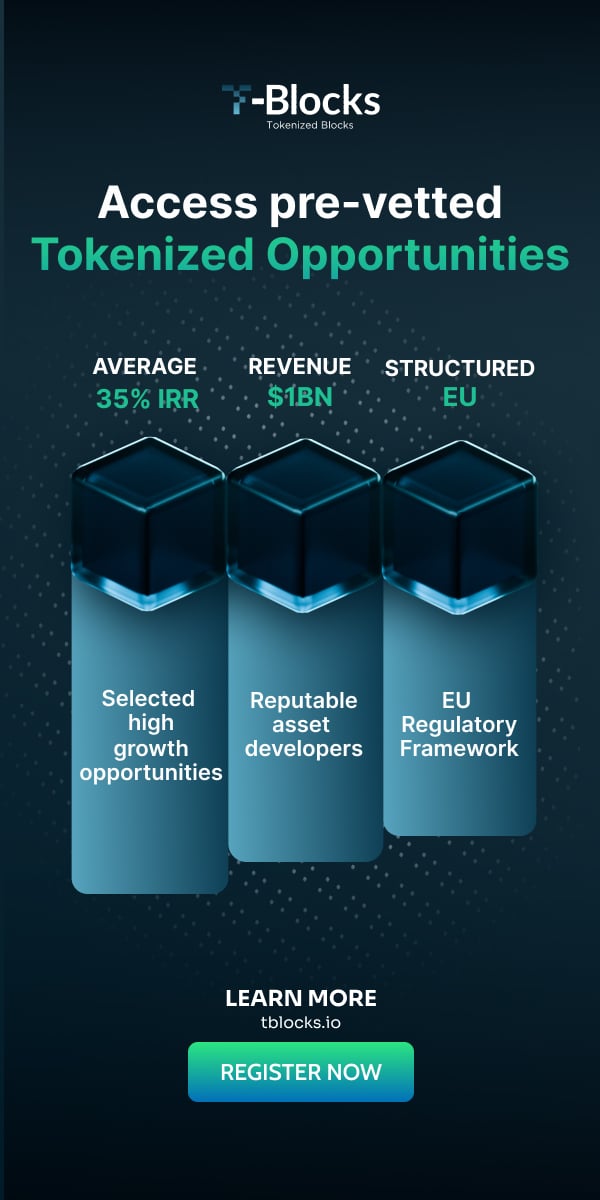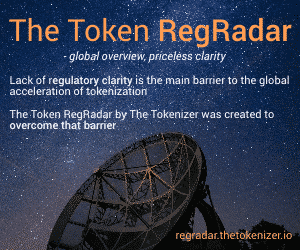– an interview with Ivan Gowan, CEO & Founder of Currency.com
Ivan Gowan describes Currency.com as the world’s first regulated tokenized securities platform where coin holders can trade a broad spectrum of global financial assets – fast, easy and without fiat currencies.
In this interview, we will try to explore how a platform such as Currency.com works in practice and how the platform is regulated. Furthermore, Ivan Gowan shares his interesting views on the likely next steps in the journey of tokenization and on how the entrance of big traditional players will be expected to boost the development massively.
Trading in practice
Michael Juul Rugaard (MJR): I think it would be useful for a start if you would explain the basics of what is happening on your platform and how it works. Let’s say that I want to buy Tesla or Uber shares for bitcoin or ether, or perhaps I want some gold or platinum, how does that work? And how does the tokenization of these assets happen?
IG: Well, if you want to buy a tokenised Uber share, then there are two ways of doing that. You can buy with leverage or without. If you’re buying without leverage, then you buy from us at Currency.com. Currency.com buys a CFD from Capital.com, our partner, who in turn has the ability to hedge the position through its counter-parties via derivatives or the underlying stock and stored at Capital.com. You would be entitled to the financial benefits, but our form of tokenised securities doesn’t provide you with voting rights, for instance. So, you would receive dividends adjustments, but no voting rights.
Whenever you want, you can sell the tokenised shares back to Currency.com, and our prices are very closely tied to the underlying price of Uber shares; and that liquidity is made through the connection into Capital.com, and because of Currency.com being a client of Capital.com.
MJR: So, what I’m buying is a tokenized share owned by Capital.com?
IG: You are buying a tokenized security, which gives you the financial benefit of the underlying security.
MJR: Okay, so I own the token that represents the share, but am I also able to take the token out – withdraw it – from your exchange and sell it somewhere else on another exchange if I want to?
IG: Well, that’s an area of major complexity which a lot of people are trying to address and work on. There is no global standard for this, and there are lots of different working parties trying to solve it in a number of ways. All of our tokens are withdrawable to the client’s hot and cold wallets, and can then be handled by any third-party who can come to us and sell. This is what tokenisation does and how our solution differs from other players. Without the ability to withdraw, we’d just be any other broker.
MJR: Okay, I want to be sure, that this is understood correctly: If I go in, and I say, “Great, I want to buy a Tesla or an Uber share” I’m buying a token – which is a digital representation of the share – by you, Currency.com. So, a CFD is held by Capital.com, but sold by Currency.com. Is that a fair way of looking at it?
IG: Yeah, that’s a fair way of looking at it.
MJR: So, I get the token, and I can hold it as long as I want, and hopefully the price will go up, and I can then sell it back to you again whenever I want?
IG: Correct. So, if Elon Musk manages to take over NASA’s program of sending shuttles into space, and the share price rockets, then you’re on to a winner.
We now offer 1,000 different markets people can trade, which is enormous. I don’t think any of our competitors have that breadth of range. And when you look at the actual tokenizing of the security, several companies out there claim to be a digital exchange, but what you buy doesn’t actually end up on the blockchain. So, it’s one thing using Bitcoin to buy a share, but that doesn’t mean that the share itself is tokenized.
MJR: And the CFDs bought from by Currency.com, they are genuinely tokenized?
IG: Correct.
MJR: Are you working together with some of the well-known issuance platforms for the tokenization process? Or are the shares tokenized by Capital.com or by yourself?
IG: So, the way that works is that we actually issue the tokens when someone buys them. So, it’s Currency.com that issues the tokens, but we are only issuing them at the point at which someone purchases them, so we don’t have enormous inventories out there with money tied up in all these assets.
MJR: Okay. So, when I buy the Tesla share, it’s issued as a token after I’ve bought it?
IG: When you buy it…Think of it in a different context. If you go to a bank and take out a loan, the bank will issue that loan at that time. It doesn’t sort of have the money out there ready for the loan in advance.
So, what happens is the clients of Currency.com say, “Here’s my order. Buy me some Uber shares.” Instantly, in the same data centre, Currency.com goes to Capital.com, buys a CFD, and then issues the tokens that represent ownership of the underlying shares.
We have our data centres in LD4, which is a very high-security data centre in London that is used by a lot of people to get low-latency access to the underlying financial markets. So, we have server infrastructure there for both businesses to allow for this automated purchasing of assets on demand at the time that the customer requires them. And this all happens in small numbers of milliseconds.
MJR: So, the way it is now I will only be able to sell back my Tesla or Uber tokens on your exchange, but as you say, going forward when the market players agree on some standard, the token I buy will probably be a token that I can sell in other exchanges and in other countries as well?
IG: Yes. And I think we will end up…I mean, if you think about the traditional share certificates world, you have custodians of share certificates. And there are pieces of paper that can be transferred between brokers, normally at a high cost and with high administrative overhead. And I think it is very likely there will be some new form of formal custodians and some forms of standards.
Now, it may be that within a certain country, one standard is adopted, and with another country, another standard is adopted. And then they try and have an interoperability layer, like all technology platforms as they’re emerging. And then over time, those standards will start to come together, and interoperability will be improved. That would be my view of how it’s likely to go.
Regulating an exchange
MJR: I would like to understand how you are regulated. Is it true that Currency.com is regulated in Belarus, and your close partner Capital.com – that you, by the way, is also the founder of – is regulated by FCA and CySEC?
IG: That’s correct. Currency.com is regulated by the High-Tech Park in Belarus. They have written specific, ad hoc regulation and legislation that was designed kind of from the ground up. They don’t have an enormous financial services and investment industry in Belarus, so they took a quite lengthy period to review how best to classify cryptocurrencies, how best to define regulation for exchanges, and how best to cover this idea of tokenizing all securities and what that means. And we have worked with the regulator there very closely and obtained a license from them.
Several jurisdictions are pushing the regulation of digital assets. With countries like Malta, Liechtenstein and Gibraltar, and Singapore, and Japan being quite friendly and innovative around it. The FCA is not providing clear guidelines yet, but they are trying to encourage blockchain and blockchain companies. Switzerland is branding itself as Crypto Nation, not however publishing much, but I think they’re getting closer to putting out some new regulations that will be quite interesting.
And then you’ve got places like Luxembourg, Lithuania or Estonia. The Estonian regulations are extremely light-touch, and you can get a license there in under a month, and they don’t really check too much. So, I wouldn’t put them in the same bracket as Belarus or Gibraltar in terms of the onus on a company to prove that they are well set up and regulated. There are different degrees of expectation around how rigorous they challenge you and what they expect to see in terms of process and procedures.
And some of the lighter regulations are saying, “Well, you know, yes, that’s nice to have, but we only really need it if the clients are really big.” So, there are different kinds of degrees of, I guess, how challenging it is to get a license and operate under that regulator.
By the way, Currency.com buys underlying securities from Capital.com and provides the layer of tokenization to clients of Currency.com, and CySEC and the FCA oversee Capital.com.
Embracing the big players
MJR: Where do you expect the development to take us from here – what’s next for tokenization?
IG: I think there is huge financial innovation that’s going to come off the back of this in a broad range of financial markets. When you get into smart contract capability, and you think about traditional institutional money, big investment banks, some of these guys have enormous trading floors of securities that are wrapped up in paper contracts with lots of complexity embedded in the contract, and transference of these securities takes days.
So, whether that’s in corporate bonds or structured products, once you can encapsulate some of the logic of how those securities transfer between parties in a smart contract, you’ve got an enormous world of reducing settlement times, increasing transparency and liquidity.
For instance, SIX, which is a technology company that powers the Swiss stock exchange and some of the Swiss banking infrastructure, is working on building an additional assets exchange, so that’s quite exciting. This is the kind of competitor that we’re really interested in having. Also, LSE has been looking at crypto and blockchain for a while now, and the Nasdaq too.
And I think getting some of the big, established financial players into this marketplace is the way that crypto will gain much broader traction, and broader adoption, and legitimacy, and continue to move the narrative away from where it started 10 years ago with dogfights and buying guns and drugs to much more reputable, real financial products.
MJR: So, in your opinion, a way forward is to get the big, traditional financial players into the space as well?
IG: I think they are racing to get into it, and they will inevitably join us. And I think that will have a really positive impact on the market, and for broader adoption and wider trust. And we’re interested because those guys will help the regulators and jurisdictions we already operate in to understand how to regulate this. And that’s an extremely time-consuming process, and quite capital-intensive. And they will likely want to learn more from this SIX group behind the Swiss stock exchange in FINMA than they would from us. So, we can’t be too far ahead of regulation, and we want others to help us develop regulation globally that will open this up in a trusted and secure way.
More Articles:
MERJ Exchange Partners With FCA-regulated Globacap to Offer Tokenized Securities to EU Investors
InvestorID Is Launched in Europe to Allow Investors to Compliantly Access Tokenized Securities





















